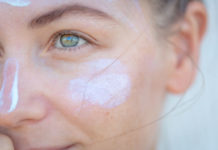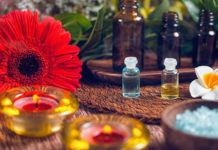
Keep skin supple and hydrated this season with these quick moisturizing tips
by sarah o’connor
With the return of cooler temperatures comes cozy sweaters, colourful foliage… and dry skin. “Fall and winter are the most common times of the year for people to come into the office complaining of dry, rough skin,” says Valerie James, naturopathic doctor with White Pine Wellness in Minden, Ont. “Patients are typically looking for moisturizers that will retain moisture and improve the quality and suppleness of the skin without causing oiliness or break outs.”
Drink up
Without a doubt, the first step toward skin that looks and feels great through all four seasons is ensuring you are drinking enough water — at least six to eight glasses a day.
“One of the most common causes of dry skin is simple dehydration,” notes James. “Our bodies are made up of approximately 70 per cent water and our cells require constant moisture replenishment in order to maintain proper composition and function.”
Deficiencies of vitamins A and D can also contribute to dry skin. “A well-balanced diet, rich in healthy fats can help to minimize such vitamin deficiencies,” says James. “Vitamin E is also used to support optimal skin health through its antioxidant qualities.” She advises consulting your naturopathic doctor before taking any supplements to ensure optimal dosing.
Soak it in
“Dehydration of skin can be minimized through a few interventions,” says James, who offers these quick tips:
- Long, hot showers can wash away the skin’s natural, protective oils. Instead, use lukewarm water and try to keep your time in the shower to a minimum.
- Afterwards, apply a mild moisturizer while the skin is still damp to lock in moisture.
- Try using a humidifier in your bedroom during the winter months to help minimize moisture loss and keep skin supple.
- Ensure you are drinking adequate water throughout the day and avoid caffeinated beverages such as teas, coffees and colas, as they are diuretic in nature and contribute to overall water loss.
- Eat a well-balanced diet rich in omega-3 and omega-6 fatty acids, as they contribute to healthy skin and support optimal health.
- Last but not least, choose wisely when selecting moisturizing lotions and creams.
“As a general rule, avoid synthetic ingredients such as propylene glycol, mineral oil and sodium lauryl or laureth sulphate,” advises James. “Instead choose natural moisturizers with the simplest ingredients, including pure organic grapeseed oil, sweet almond oil and olive oil.”










